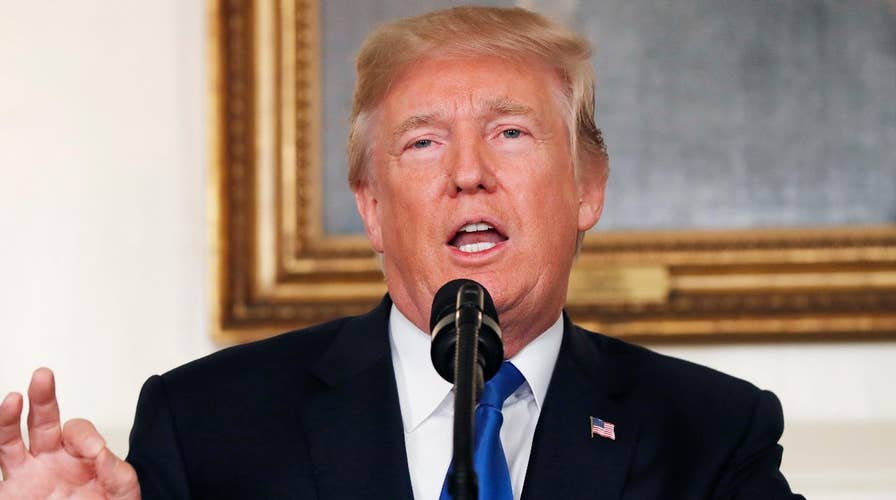President Trump unveils Iran strategy
President Trump allows the Obama administration’s Iran deal to stand, but he chooses not to certify it. Doing so, he kicks the decision making to congress. What are their options?
When then candidate Donald Trump declared his America First foreign policy doctrine, there were those in the national security community that were, well, disturbed.
They called him an isolationist, crazy, out of his mind, some even thought he was stupid. At the time, I was part of the Ted Cruz Team, and certainly not in Camp Trump—at least not yet.
While I was not a supporter then like I am today, being a realist on foreign policy issues, I liked the tone of what he was saying as a candidate. He wanted to end nation building, stop sending our brave men and women oversees to die in pointless wars, making sure our allies pay their fair share of the common defense and working towards not just free trade but fair trade.
While there weren’t specific policy options around what he was saying just yet, I thought these were smart, common sense ideas missing from our national discourse. They were reasonable and they resonated with the American people.
And the implementation of America First has been well done. As someone who believes such a doctrine means that Asia should be our biggest foreign policy focus—thanks to a rising China and nuclear armed North Korea—the president’s actions in this part of the world have been impressive. Instead of declaring a "pivot"or "rebalance" to Asia like President Obama—offering essentially foreign policy bumper stickers that mean nothing—Trump has taken on Beijing and Pyongyang quite effectively.
But all of that is in doubt now.
In decertifying the Iran deal, President Trump has pushed to the front of the national security pecking order a likely confrontation with Tehran.
While I am no fan of the Iran nuclear deal, President Trump’s number one foreign policy objective should have been to resolve the crisis with North Korea—the roguest of rogue regimes that has likely a crude capability to hit the U.S homeland with a nuclear weapon.
Iran, itself a rogue state that is no friend of America, has no such capability, and won’t for likely the next decade thanks to imperfect but working agreement.
In fact, taking on Iran now only works to North Korea’s advantage. Washington, the media, and the global national security community will now endlessly debate what Trump should do about Iran, if conflict is simply inevitable, and what will happen in the future.
North Korea, if its leaders are smart, will do what they have done in past times of tensions: pull back from missile and nuclear testing and let matters cool down. Pyongyang can continue to advance its atomic weapons and rockets in the lab for now—while Tehran takes all the fire and fury from Team Trump.
Somewhere in Pyongyang, Dictator Kim is smiling ear to ear—and is now guaranteed to be a nuclear state for many years to come.
President Trump will someday look back on the decision with regret.

